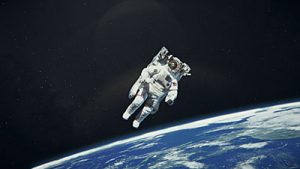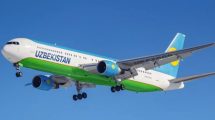
The UAE and Russia have signed an agreement to send the first Emirati astronaut to space to participate in scientific research as part of the Russian space mission to the International Space Station aboard the Soyuz-MS spacecraft.
The cooperation agreement was signed by the Mohammed Bin Rashid Space Centre (MBRSC), and The Russian Federal Space Agency (Roscosmos) on the sidelines of UNISPACE +50, a symposium and special high-level meeting of the Committee on the Peaceful Uses of Outer Space (COPUOS) in Vienna, Austria.
Speaking about the historic pact, Sheikh Mohammed bin Rashid Al Maktoum, Vice President and Prime Minister of the UAE and Ruler of Dubai said that sending the first Emirati astronaut to space will herald the beginning of a new era for the UAE.
“The UAE has signed a historic agreement to send the first Emirati astronaut to the International Space Station. The journey that we began 12 years ago is beginning to bear fruit,” commented Sheikh Mohammed.
“Our vision to develop the national space sector is being realised with the development of a spacecraft, the construction of our first local satellite manufacturing facility, the training being given to Emirati astronauts, and the launch of a comprehensive scientific and research programme.”
He remarked that the agreement supports the objectives of the ‘UAE Centennial 2071’, which focuses on the development of futuristic sciences across various sectors including innovation, space, engineering and medicine. He also commented that the agreement provides an impetus for advancing the UAE’s future space ambitions which include building the first inhabitable human settlement in Mars as part of the 2117 Mars project.
Sheikh Hamdan bin Mohammed bin Rashid Al Maktoum, Crown Prince of Dubai and Chairman of the MBRSC added that the first Emirati astronaut will travel to space within a year of the UAE Astronaut Programme, creating a final shortlist of candidates as part of the National Space Programme.
Four candidates will be selected from the 95 shortlisted applicants (of which 75 are males and 20 females) aged between 23-48 years, as part of the UAE Space Programme announced in April 2017.
Hamad Obaid Al Mansouri, Chairman of MBRSC, said: “Selecting and training Emirati astronauts is crucial to the success of the UAE Space Programme. The selected astronauts will participate in scientific research programmes that will serve humanity and help develop the UAE space sector in the future.”
The International Space Station (ISS) is a multi-nation construction project that is the largest single structure humans have ever put into space. Its main construction was completed between 1998 and 2011, although the station continues to evolve to include new missions and experiments.














Add Comment